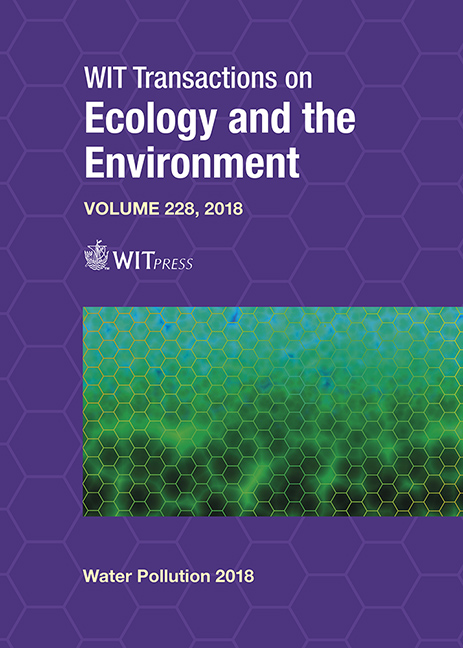IMPROVEMENT OF THE METHODOLOGY FOR ASSESSING DOMESTIC WASTEWATER TREATMENT QUALITY USING BENCHMARKING TOOLS
Price
Free (open access)
Transaction
Volume
228
Pages
11
Page Range
209 - 219
Published
2018
Size
385 kb
Paper DOI
10.2495/WP180211
Copyright
WIT Press
Author(s)
IRINA RUKAVISHNIKOVA, ANDREY KISELEV, MARIA BEREZYUK, IULIA ASHIROVA
Abstract
Problems with the treatment efficiency of domestic wastewater for the Ural Federal district have remained relevant for several decades. More than 55% of the total amount of contaminated wastewater originates from municipal wastewater utilities. Sectoral legislation reform, the development of private capital and tariff regulation have contributed to the long-term improvement of municipal wastewater utilities in solving modernization and environmental problems, including the involvement of different groups of stakeholders in this process. The existing methods and tools for assessing the achievements of key performance indicators in the field of domestic wastewater treatment are not representative, do not reflect the dynamic results; information turnover occurs with no publicity; and there is no possibility to compare results with similar companies in other districts of the Russian Federation, to identify and replicate the best practices. This paper proposes a methodical approach for wastewater treatment quality assessment conducted by water companies. The transition from the currently used indicator, the proportion of sewage samples that do not meet the accepted standards for allowable discharge standards (ADS), doesn’t allow making an adequate assessment of the water companies’ efforts in wastewater treatment facilities’ modernization, towards indicators that take into account the multiplicity and frequency of ADS excess by effluent components, is suggested. The proposed indicators can be used in sectoral benchmarking, for assessment of the effectiveness of the environmental activities within wastewater utilities. The comparison and analysis of the indicators’ dynamics can help identify and replicate the best practices used in the field of wastewater treatment processing, under conditions of availability of information to the professional community. Finally, this action will create significant progress for water companies on the issue of reducing negative environmental impacts.
Keywords
benchmarking, quality assessment, Russia, sustainable development, wastewater treatment, water quality, water treatment





